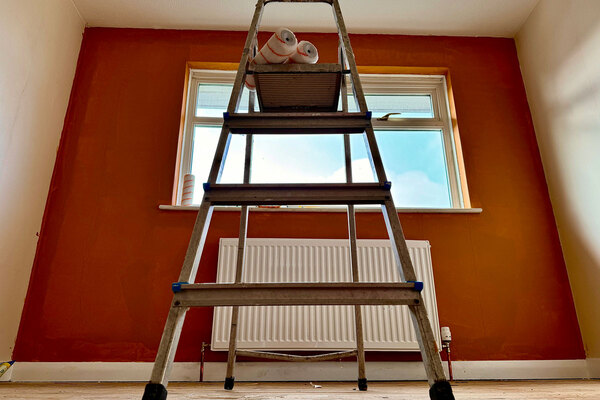V2 to be ‘new normal’ for sector’s financial health, regulator warns
Landlords face a V2 rating being the “new normal”, with around “a couple of dozen” more expected to be downgraded over their financial viability by the end of the year, a senior figure at the English regulator has said.

Speaking to Inside Housing, Jonathan Walters, the Regulator of Social Housing’s (RSH) deputy chief executive, said the latest action reflected the “economic reality” for the sector.
Currently, 117 out of 204 large registered providers have a V2 grade, which represents 57% of landlords with a thousand or more homes.
The latest wave of downgrades started this month. More are expected in a round of regulatory judgements this week, following annual stability checks. Further rounds of judgements are expected by the end of next month, which could leave around two-thirds of the sector with a V2.
“For the moment, V2 is going to be the new normal,” Mr Walters said.
“There will be some providers that move up and some that move down, but in broad terms for the foreseeable future, I think the sector is going to be predominantly a V2 sector.”
Mr Walters stressed that having a V2 grade was not necessarily a problem.
“V2 is a reflection of the economic reality that the sector’s in at the moment,” he said.
“I don’t think there’ll be negative consequences for those providers if they are regraded this year.
“But what’s important is that you understand the risks and you’ve got plans to mitigate them. V2 is fine, but V3 is very definitely not.”
V2 is a compliant grade and, according to the regulator, means a landlord “has the financial capacity to deal with a reasonable range of adverse scenarios, but needs to manage material risks to ensure continued compliance”.
Mr Walters had already predicted last year that two-thirds of the sector would be V2 by the end of 2022, but he suggested some providers had mitigated to prevent this happening.
“[Housing associations] have been looking very closely at where they’re spending their money, what can they actually afford to spend, and that has driven a great deal of efficiency within the sector,” he said.
“All of that means, of course, there isn’t any low-hanging fruit anymore.”
“There are now fewer and fewer things providers can do, which is why we’re seeing more move to V2.”
He said the difference this year was more “medium-sized” organisations were likely to be downgraded, whereas in 2022 it was large groups like Clarion, L&Q and Sovereign that moved to V2, some for the first time.
Mr Walters pointed to the fact that some big landlords had cut their development plans, but said many in the sector would be “loath” to give up on building homes, bearing in mind the housing crisis.
Earlier this month, the regulator also warned that the declining private housing market was affecting landlords.
Providers are being forced to spend more on improving homes in the wake of a continued focus on building safety, damp and mould, and tackling energy efficiency.
“It’s very clear to everybody what they need to spend on their stock and that’s become non-negotiable,” Mr Walters said. “I think that’s removed some of the room for manoeuvre that they would have had previously.”
But he added: “We’re really keen that providers understand how close they are to running out of cash and how close they are to their covenants, and that they have planned for what happens when they get within certain parameters.”
He said landlords must think about mitigations to take cost out of their organisation if needed.
“But for us, what’s really important, is providers aren’t making that stuff up on the fly and have actually thought that through beforehand.”
Sign up for our development and finance newsletter
Already have an account? Click here to manage your newsletters











